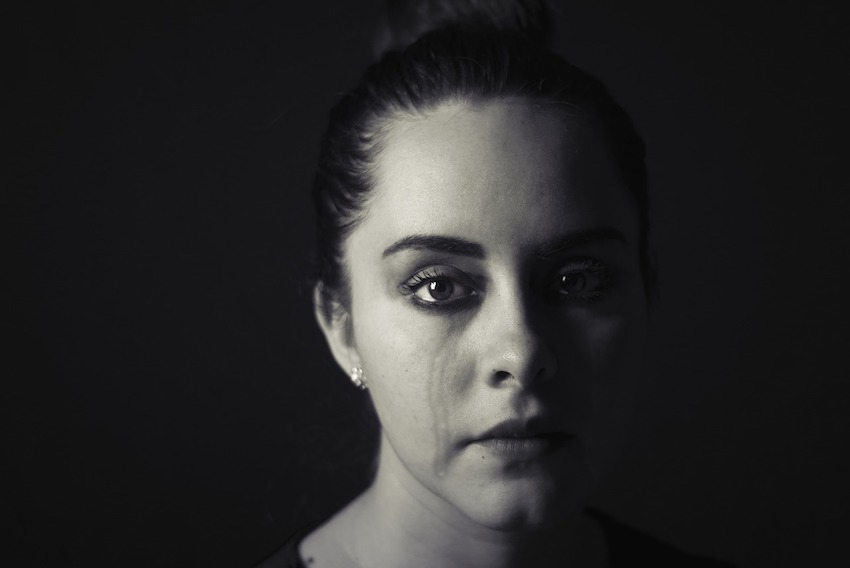6 Things You Need to Know About Teens Who Are in an Abusive Relationship
According to a study carried out on teenagers between the ages of 15 and 18 in England and Spain. Approximately 23% of young people reported victimisation and 30% reported perpetrating violence in a relationship. While living without abuse states that domestic/inter-couple violence accounts for 16% of all violent crime. (Source: Crime in England and Wales 04/05 report). However it is still the violent crime least likely to be reported to the police.
Find out why teens handle abusive relationships in this way. As well as other important things you need to know.
1. What Abuse Looks Like
Physical abuse can include kicking, hitting, shoving, slapping and pinching. Sexual abuse can involve unwanted kissing, touching or rape. Emotional abuse can involve isolating, stalking, threatening, yelling at and berating the person. Abuse can even be in digital form. Via constant unwanted texting and calling, digital stalking and pressuring the person to send explicit photos.
Some types of abuse can also be considered domestic violence. According to Hand Law domestic violence lawyer Matthew Hand, “Domestic violence charges arise from sloppy or nasty text messages, from criminal mischief (damage to property), from minor pushing incidents, to more serious assaults and felony strangulation.”
2. Teen Dating Abuse is Considered Domestic Violence
Although at one time, domestic violence was only used to describe abuse that occurred within a household to a female. It now includes all of the following relationships. And it does not discriminate according to age or whether the victim or abuser is male or female.
- Married couples.
- People who are dating.
- People who are intimate with one another.
- Family members.
- Children.
- Couples who cohabitate
3. Why Teenagers in Abusive Relationships Don’t Say Anything
When teens are in an abusive or violent relationship, they may choose not to say anything to their parents. Or anyone else. There are many reasons why. They may be afraid their parents will make them break up with the person. They are ashamed they are in the situation. Or they are confused as to what a healthy relationship is supposed to be.
Teens often have little experience with healthy dating relationships. And may believe that they are in love with the person who is abusing or being violent toward them. They could confuse the jealous actions of girlfriend or boyfriend as a symbol of love. They also may cling to the times that their abuser is nice to them. And brush aside the times that they are treated badly.
4. How Isolation Affects Teens in Abusive Relationships
When teens are in abusive relationships, they often find themselves isolated. And without other close relationships with friends and family. This can make it difficult for them to develop any new or healthy relationships with other peers. It can also stand in the way of them developing personal values and beliefs. They may find it hard staying focused on important responsibilities, such as school; and feeling emotionally independent.
5. Warning Signs That a Dating Relationship Is or Might Turn Violent
When you have the opportunity to observe your teen’s relationship and you notice any of these warning signs. It’s time to sit your teen down and have a conversation about the possible abuse and violence that could be occurring. Warning signs to look for include a boyfriend or girlfriend who:
- Has an explosive temper.
- Exhibits excessive jealousy.
- Demands that your teen check in with him or her.
- Seems too serious about a relationship that’s relatively new.
- Has a string of bad relationships and breakups in the past and blames everything on the other person.
- Insults people your teen cares about.
- Tells your teen where she can go and can’t go.
- Tells your teen what to wear and not to wear.
- Has a history of being violent.
- Openly mistreats other people or animals.
- Pressures your teen into kissing, touching or other sexual contact.
- Believes strongly in stereotypical gender roles.
- Refuses to take responsibility for his or her actions.
- Makes your teen “walk on eggshells” around him or her.
6. If You Suspect Your Teen is in an Abusive Relationship, Communication is Key
You may find it difficult to get your teen to sit down and talk with you about your concerns about his or her relationship. It may take you removing your teen from the situation, such as making plans for a family road trip where you can reconnect and find out what’s going on.
Written by Tim Baker. Tim is an avid traveller, blogger and freelance writer. Tim contributes to a number of travel and lifestyle blogs, sharing his travel and life experiences.
You can find The Life of Stuff on Facebook, Twitter and Instagram








